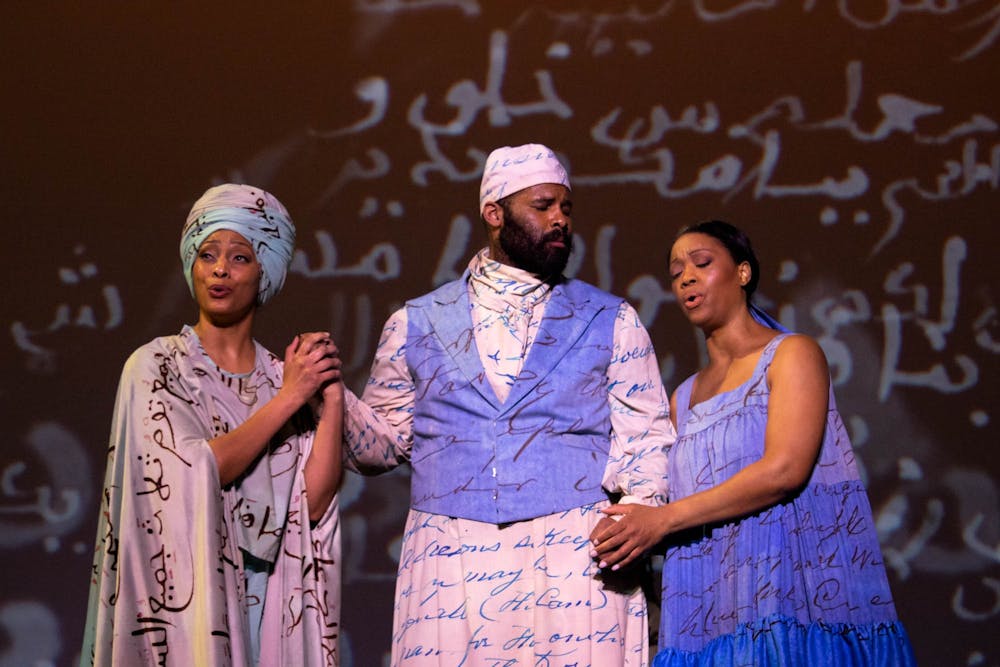This weekend at Memorial Hall, the Carolina Performing Arts will be showing "Omar" – an opera following the story and life of Islamic scholar Omar ibn Said.
Leading up to the North Carolina premier, UNC has hosted several events and discussions surrounding the historical context behind the opera, delving into who he was, his impact and his connection to the University.
Said was born in West Africa and was forced into enslavement in Charleston, S.C. He eventually escaped to N.C., where he was enslaved again in Fayetteville until his death. He wrote the only known autobiography written in Arabic by an enslaved person in the U.S.
The opera’s creator, Grammy award-winning Rhiannon Giddens, is originally from N.C. and is currently an artist-in-residence with CPA. She worked with Emmy-nominated composer Michael Abels, to study Said's original texts and set his story to music on the stage.
"All across the country, other presenting organizations bring this story of Omar Ibn Said to light for large audiences through the arts. I mean, this is a way of the arts making a historical intervention so that Omar Ibn Said becomes a household name," Amanda Graham, associate director of engagement at CPA, said.
"Omar" will be touring across the nation, but its ties to N.C. are what make it special to campus, she said. While he was enslaved in the state, Said's slaveholders, the Owen brothers, had affiliations with the UNC campus. So, many scholars believe that it was possible that Omar actually spent time at the University, she said.
Several of Said’s original manuscripts reside in Wilson Library Special Collections. These texts will be available for viewing on three dates in the coming weeks for the campus community to see and learn more about the inspiration behind the opera.
The opera's music has a deep connection to Black folk music. Giddens said that through the opera, she is attempting to defy a false narrative that Appalachian folk music comes from mostly white musicians, erasing Black contributions to the genre.
“'Omar' at its heart, is doing a couple of things,” Giddens said at a pre-show event on Thursday. “It is talking about Omar, the man and his journey. And that's incredibly important, but it's also talking about the world that he goes into which is a multilayered, multifaceted world of music that we no longer know.”



